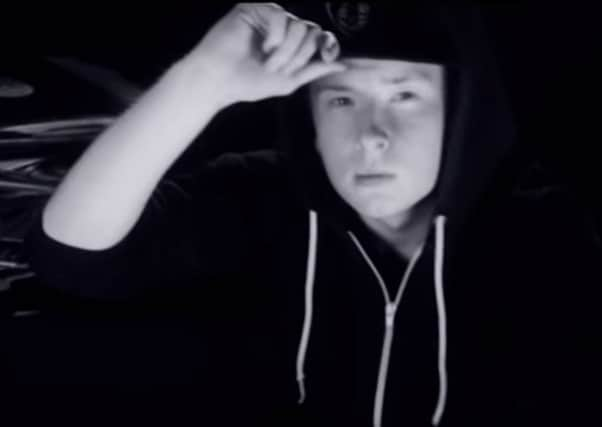Darren McGarvey: Depression is a foe that dwells within all of us


In Glasgow, it’s not unusual to hear of the dead being pulled from the Clyde. People end up in there for all sorts of reasons and we Glaswegians have grown accustomed to them being fished out. To be fair, river-related fatality is not the only macabre urban occurrence to which we’ve become deadened in this neck of the woods. It seems people descend into the Clyde with such a normalising regularity that we city folk barely flinch when news of it reaches our ears.
But for most of us, a day will likely come when the lifeless body being fished out of that unforgiving water belonged to a soul we knew. When that day comes – and it will – those unremarkable waves and currents, over which we cross every other day without second thought, suddenly possess a strange hypnotic pull, as we stare down, in morbid fascination, wondering what possible appeal such a bleak and murky end could have had.
Advertisement
Hide AdAdvertisement
Hide AdFor those of us involved in the Hip Hop community in Scotland, that day came last week when rap artist Calum Barnes, who performed under the name Lumanes, made his way purposefully to the Clyde Arc – known colloquially as “the squinty bridge” – while family and friends believed he was asleep in his bed. There, Calum, who recently volunteered with a mental health charity to raise awareness about depression, stood above the cold river alone, preparing to end life on his own unambiguous terms.
Despite attempts by passers-by to talk him down, and a last-minute dash by emergency services, Barnes plunged into the water below, before vanishing out of sight. There he remained for nearly a week.
On Saturday, his body was found and formally identified. Calum was only 21 years old.
As news of his death spread across social media, the reactions took many forms, but the deep sense of shock felt in the music community was unanimous. Calum was unique to the extent of seeming unusual; in a rap scene full of machismo, bravado and chemical excess, he was a conscientious and charismatic presence. A sensitive young man who possessed the self-awareness to know that booze and drugs, in all their apparent ubiquity, were not the faithful friends many of us previously believed. Bumping into him at an event was a rare treat for me, two-and-a-half years sober, because I’m usually the only person in this environment who doesn’t drink.
Calum, who once performed a live show outside a venue because he was too young to get in, was slowly confronting the fact alcohol was his enemy, facing this difficult truth with courage and optimism. He was doing something so many people wish they could, but never do: attempting to steer his own course through a sea of quick and easy self-obliteration – with his head held high.
I don’t know if he regarded himself as someone with a drink or drug problem, but I remember seeing him on a few occasions with that lost look in his eyes. That look I know too well, when someone is both gone and completely present in the lucid nightmare of destructive drinking. A living hell where the quick fixes that used to quiet those voices, now turn like rusty screws in the walls of your racing mind. Given how many years I’d wrestled with drink and drug use, I had nothing but respect for this insightful, generous and deeply thoughtful young man who seemed destined to recover and live a long, rich and useful life.
Only a few weeks ago, Calum posted proudly about going to bed early on a Saturday night. Now that bed lies empty, just the way he left it, before making his final journey to the river.
Many hundreds of Scots choose to end their lives every year. And for every suicide, there are many more who attempt it and fail. For every one of those, there are more who think of killing themselves, but don’t act on it.
Advertisement
Hide AdAdvertisement
Hide AdSuicidal ideation is when someone develops an unusual preoccupation with ending their own life and gradually begins to see suicide not as a fantasy, but as a perfectly reasonable solution to the problem of living.
But it’s never a solution, nor can it ever be regarded as one. In truth, the thought that anything good may come of ending your own life like Calum did is no more than a vivid mirage, manufactured by a mind in terminal distress. Seeing through the illusion, to the other side, is truly a matter of life and death. The problem is this issue conceals itself, even from the sufferer, often until it’s too late.
Calum was a thoughtful young man who spent much of his time pondering the problems of the world and sharing his insights with the community. All the while, the most pressing challenge he’d ever face, concealed itself right under his nose, waiting patiently for the opportunity to overwhelm him.
That same foe dwells within all of us. Hiding in our blind spot. Waiting patiently to set forth its twisted and compelling case for our self-imposed departure from the world of the living.
We must always keep an eye on those around us, who may be vulnerable. But equally, we must also remain vigilant that this most cunning of mental adversaries does not quietly take residence in the darkest corner of our own minds, while we’re looking the other way.